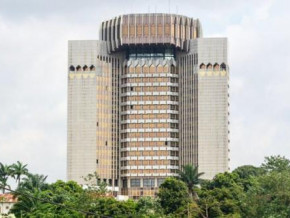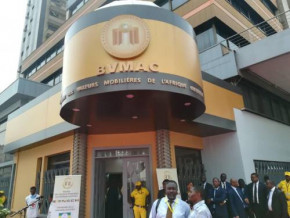
SNI expands ever-improving portfolio, after years of poor performance

(Business in Cameroon) - Sahel Hotel Corporations (SHC) is now part of the National Investment Corporation of Cameroon (SNI). According to the 2021 report on the financial position of public and para-public companies, SNI acquired 100% of SHC for CFAF160 million.
With that acquisition, SNI becomes the owner of the 4-star hotel built, in Gaoura, to boost the hotel offering on the sidelines of AFCON2021. The deal raised the number of businesses in the investment corporation’s portfolio to 31 (as of December 31, 2021).
Twenty-five of those businesses were operating normally, while fiveSPM, Sitrafer, SCS, Milkiway, and Camelca were closed down and Camship is under liquidation. In 2020, SNI’s portfolio shrank to 30 companies after Socatral was absorbed by Alucam and SATC was liquidated.
According to the report, the investment corporation’s financial situation has been improving since 2019. From a CFAF559.3 million loss in 2019, its net profit jumped to CFAF105.2 million in 2020 and CFAF530.2 million in 2021. The financial performance was recorded thanks to the portfolio companies. "Following the normal resumption of activities by SNI portfolio companies [...] a 44.44% increase in pre-tax sales, 4892.5% increase in accumulated net income, a 55.11% net profitability rate, and 12% gross rate of return were recorded,” the report states. It adds that the number of jobs offered by the portfolio companies dropped 0.64% while their contribution to GDP rose by 44.75%, thanks to the taxes and duties they paid.
The 2021 performance starkly contrasts with the 2019 figures. "There has been an overall deterioration in the performance of the SNI portfolio, with the net profitability rate of companies standing at -51.05% in 2019, compared with -37.56% in 2018. The number of profitable companies fell from fourteen (14) in 2017 to ten (10) in 2018 and finally to eight (8) in 2019," the CTR revealed in the 2019 report.
The situation gradually improved, starting in 2020 despite a 29.82% decline in the sales of portfolio companies. Thanks in particular to a relative cost containment system, cumulative net income rose by 98%. The profitability rate improved from -51.05% to -1.02%. Also, the portfolio's gross yield improved, from 7.01% to 9.61%.
The SNI is also boosting investments, with an integrated corn, seed, grits, and flour production unit in Ntui, Central Cameroon. The project will not only increase the number of businesses in the investment corporation’s portfolio but also improve the local production of corn derivatives, notably grits, whose current supply is unable to meet the demand of brewing companies.
Cédrick Jiongo
Mags frontpage
- Most read 7 days
- shared 1 month
- read 1 month































